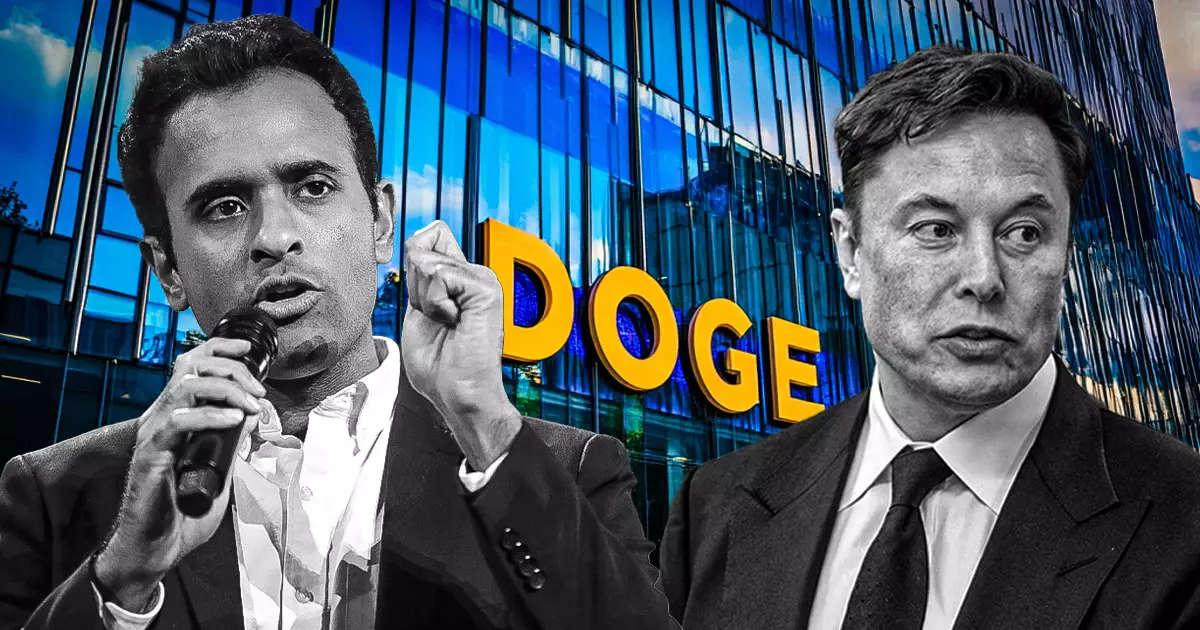In a bold move that underscores the growing intersection of technology and governance, President-elect Donald Trump has introduced the Department of Government Efficiency (DOGE), a new initiative aimed at overhauling the U.S. government’s bureaucratic landscape. Notably, Trump has appointed two notable figures in the tech and business sectors—Elon Musk and Vivek Ramaswamy—to spearhead this ambitious project. Announced on Trump’s Truth Social platform on November 13, this initiative aims to tackle the pervasive inefficiencies within Washington, D.C., with the goal of creating a streamlined government that better serves its citizens.
Trump’s comparison of the DOGE mission to the innovative Manhattan Project of World War II reflects his aspiration for significant government reform. Just as the Manhattan Project was about harnessing scientific ingenuity to achieve victory, the DOGE initiative aims to harness modern technology and thought leadership to eliminate waste and fraud in a staggering $6.5 trillion federal budget. The administration envisions a government that is not only smaller but also far more effective in its operations—goals that align with Trump’s ongoing “Save America” campaign.
Despite its independent mandate, DOGE will closely collaborate with the White House and the Office of Management and Budget to implement structural changes that are both necessary and pragmatic. In a reflection of modern governance ideals, transparency will be central to DOGE’s operations. Musk, in his statements on X, promised that the initiative will actively solicit public feedback on its workings. This engagement aims to foster accountability, allowing citizens to voice their opinions on what constitutes essential expenditures and where waste occurs.
Musk’s commitment to transparency extends to a unique feature of the initiative: a “leaderboard” that will spotlight some of the most egregious examples of government waste. Ramaswamy echoed this notion, suggesting that Americans should be active contributors to identifying wasteful practices within the federal system. Such public participation is crucial for a program that seeks to fulfill a populist mandate—people are called to play a critical role in shaping their government.
The naming of the department after Dogecoin has ignited anticipation among crypto enthusiasts, although it also coincided with a recent decline in Dogecoin’s price, reflecting the volatile nature of cryptocurrency markets. Nevertheless, Musk’s affiliation with the DOGE initiative may reinvigorate interest and positive sentiment towards the cryptocurrency, particularly in light of a potential upcoming bullish market.
Trump’s DOGE initiative represents a convergence of political ambition and technological innovation. By bringing together influential figures in the cryptocurrency space, the initiative aims not only to streamline government efficiency but also to redefine public engagement in governance. As the campaign progresses, the effectiveness of DOGE will ultimately hinge on its ability to deliver tangible results and maintain transparency—hallmarks of a modern government. The juxtaposition of crypto culture with traditional governance is not just a novelty; it reflects an evolving narrative about how citizens can reclaim agency in their political systems. As the initiative unfolds, its impact on both governance and the crypto landscape will be closely scrutinized, setting a precedent for future government reforms.

